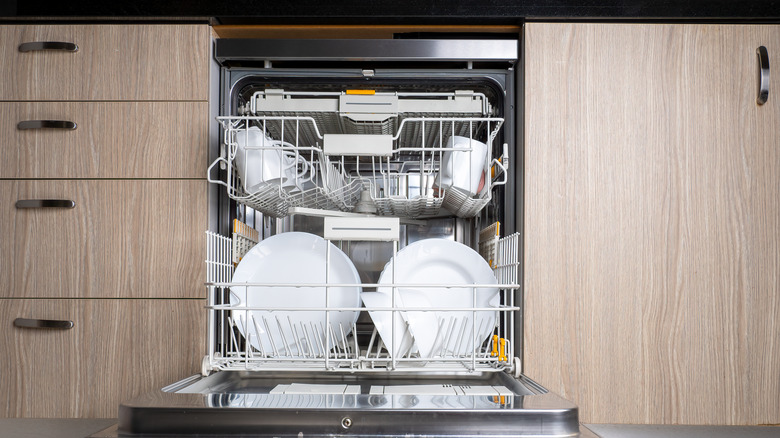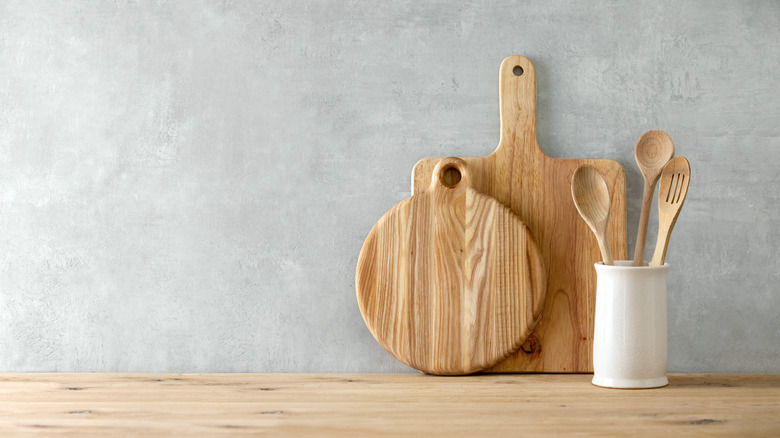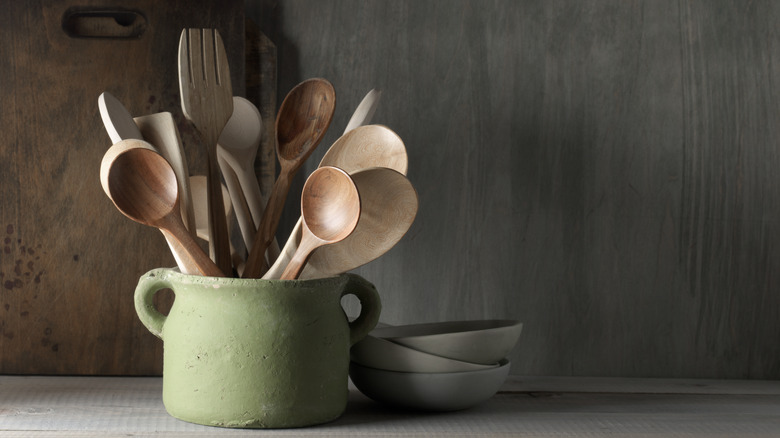Should You Be Boiling Your Wooden Spoons To Clean Them?
Everyone has a unique approach to cleaning their kitchen. While there's no best way to do it, it can save you a lot of time to make a cleaning checklist first. You can start by removing any clutter or items that don't belong in the kitchen. Up next, clean the dishes to clear up the counter and sink areas. If you're lucky enough to have a dishwasher, you can just toss the dishes in there and let it do its thing while you wipe down the kitchen surfaces and appliances, sweep, mop, and take out the trash.
But wait– should you wash all of your dishes in a dishwasher? It seems like a great idea and it's probably the easiest way to make sure your dishes and utensils get clean. But dishwashers use boiling hot water in the cleaning process. What if you have wooden utensils? Should you be washing those in the scalding water of a dishwasher, or any boiling water, for that matter?
The dangers of boiling wooden utensils
The CDC says that boiling items is the fastest and most thorough method of killing viruses, bacteria, and even parasites. That being said, you should not boil wooden spoons or other wooden kitchen items — like cutting boards — to clean them. Boiling water damages and warps the wood, which includes boiling hot water from a dishwasher. The water can also seep into the wood, causing it to swell and potentially crack. Those cracks can then become a breeding ground for bacteria that will eventually make their way into your food.
The warping and cracking, plus the pressure from a dishwasher, can take a fast and heavy toll on your wooden kitchen utensils. That is why you should hand-wash all of your wooden kitchen tools in warm (but not overly hot) water with mild soap. Be sure to rinse them well and dry them thoroughly so that they aren't accidentally damaged.
Taking care of your wooden utensils
If you are struggling to get stuck-on food off of wooden utensils, you can scrape off any excess food with a knife or the edge of a spoon, then rinse the utensil under warm water to remove any loose particles. If the food is still stuck, create a paste by mixing equal parts baking soda and water. Apply the paste to the affected area and let it sit for 10-15 minutes. Then, use a gentle scrub brush or a clean cloth to scrub the item. Always remember to scrub in the direction of the wood's grain.
To keep your wooden utensils in tip-top shape, periodically treat them with food-grade mineral oil or beeswax to protect the wood and extend its lifespan. This gives the wood a protective layer that keeps it from cracking so easily. As an added bonus, this makes cleaning the wooden utensils faster and simpler, as it creates a smooth and even surface to wash.


